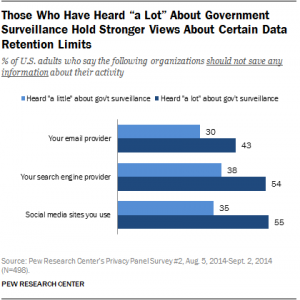Brick & mortar retailers are struggling because consumers prefer to self-serve with e-commerce shopping. The e-commerce channel reduces human-to-human contact and fails to build lasting customer relationships. A recently published Retail Dive Consumer Survey found that “only 13 percent said consumers visit stores to pose questions to sales associates.” Consumers are not “posing questions” in retail stores because they prefer to self-service, it’s because there is nobody there to ask. But what if there were e-commerce sites, powered by associates who could answer questions and make recommendations? This concept may save the retail industry.
An Omni-channel Retail Associate Study, released by Salesfloor, found that “84 percent of shoppers say they seek out help or recommendations from sales associates.” This statistic also seems reasonable. If shoppers like to get advice from a sales associate but don’t go into a store, there is a disconnect. Retailers are eliminating experienced sales associates to cut costs but that plan is backfiring. As we all know, competition is fierce, so now is a good time to change gears.
Over the long-term, brick & mortar stores can only survive and be competitive if knowledgeable sales associates are employed who can provide guidance to the customer. The company culture must foster the creation of personal relationships between the associates and their customers and have a process in place to secure repeat business. Too many retailers do not have adequate staff or the technology to provide the service customers need and want.
Other statistics got my attention from the Omni-channel study:
- 87 percent of shoppers are more likely to buy an item recommended from a sales associate
- 77 percent of shoppers are more likely to make a purchase from a sales associate who has helped them before
- 73 percent of shoppers say sales associates who remember their personal preferences/style impact how much they buy from a retailer
- 62 percent of shoppers would prefer to receive personalized marketing emails from an individual associate rather than the retailer’s marketing newsletter
- 60 percent of shoppers are more likely to share their email address and personal information with a retailer if they know that information will be used by an individual associate
These numbers are dramatic and compelling. Retailers should take notice and understand their operating budgets must include hiring and training sales associates to provide advice to customers. That’s step one. Step two is having the technology and processes in place that allow the customer who shops in a brick & mortar store to rely on the same associate who they trust and know for their online purchases.
Customers will shop in the store and online and the objective is to connect the two separate channels into one. The in-store associate becomes the bridge, allowing the customer to rely upon the same associate, tried and true, for all their purchases.
I recently learned about Salesfloor, founded in 2013 by Oscar Sachs and Ben Rodier, to address the void in service that shoppers experience when using a retailer’s website compared to shopping in the store. The founders’ backgrounds include retail operations from Best Buy and Aldo Group, coupled with comprehensive digital marketing agency experience. The concept of Salesfloor is a winner!
Retailers such as, Toys“R”Us, Saks Fifth Avenue, Lord & Taylor, Stuart Weitzman, Bloomingdale’s, Kiehl’s and Harry Rosen get it and are already leveraging Salesfloor’s technology. Their technology provides the framework for a salesperson to replicate the relationship developed in a store to extend to online purchasing.
The concept is simple, but works. When a brick & mortar shopper develops a relationship with a sales associate, the associate advises the customer that they can assist them with their online purchase decisions as well. Salesfloor Storefront™ allows the associate to interact with customers, recommend products, and for the first time, sell online. For example, a customer spends time in a store with an associate getting information on a product or trying on clothes but is not ready to buy yet and leaves the store without purchasing the item. With Storefront™, the associate can gather the customer’s contact information and keep in touch. With the customer’s permission, the associate has the vehicle to reach out and thank the customer, provide fashion advice, tell them about new merchandise, etc. and assist them with online purchases. In other words, continue and nurture the relationship. Additionally, the associate will get credit for all sales the customer makes on either channel.
According to Marc Metrick, President of Saks Fifth Avenue, “Customers can now connect with Saks associates 24/7 and receive the full benefits of Saks personalized service beyond the store. Saks associates have the ability to create customizable Saks merchandise accessible through a dedicate URL. As a result, associates can connect with new and existing customers online, touting their handpicked merchandise, expertise and industry knowledge via live chat, email or scheduled appointments. In addition, Saks associates can showcase their online Storefront™ to customers through email and social media tools built into a mobile app. This new technology is part of the brand’s ongoing efforts to extend its all-channel model and allows customers to enjoy the Saks Fifth Avenue’s elevated level of service, no matter how they choose to shop.”
Research shows that, on average each associate using Storefront™ sees a 50 percent increase in average order value, which also results in more than a 10 times boost in online conversions. There is a direct correlation between customer spending in-store and the service the consumer receives when shopping online. For every $ 100 converted online by a sales associate via Salesfloor, retailers are able to attribute up to $ 68 purchased in a brick & mortar location. Competitors can match your prices, purchase the same technology, but they cannot replicate a personal relationship between your shopper and associate.
Salesfloor’s technology can also initiate a personal relationship with an associate online that has never shopped in the retailer’s brick & mortar store. Online shoppers who request help or have a question are asked if they would like to be connected (or meet) an associate at a store in their geographic area. This is also a way that associates can grow their personal business by acquiring new clients and earn a commission for any merchandise that the customer purchases either online or in the store. That’s another great concept and winning strategy to secure repeat business from all channels.
When e-commerce was first introduced, retailers failed to understand the basic premise that online and brick & mortar stores should be connected. Retailers set up e-commerce sites when a large percentage of households installed high speed Internet allowing consumers to shop online more efficiently. Online became a separate silo, totally distinct from brick & mortar. The associates who had created and built relationships in the stores over time with their customers should have been the ones who managed the relationship with their customers online. That was a missing piece of the puzzle. But, it’s never too late. Companies like Salesfloor, who understand that it’s people that drive sales and create repeat customers, will help retailers to make online personal; one customer to one associate.
While the Retail Dive’s Customer Survey finds that a relatively small percentage of consumers visit stores to seek advice, I think an analogy to best describe that phenomenon is the “chicken and the egg.” Are shoppers not asking the advice of associates because they don’t value their opinions, or because customers have become used to visiting stores who have insufficient and poorly trained staff and high turnover? What came first? Retailers have forced their customers to self-serve in physical stores replicating the lack of personalized and antiseptic service online.
While Salesfloor is primarily targeting luxury brands and retailers, I know the application and concept can apply to many other retailers as well. Bed Bath & Beyond and Staples, who failed to coordinate their brick & mortar and online business, could use the concept to their benefit. They turned their products sold in their successful brick & mortar businesses into commodities online, where their loyal customer base started shopping by price only.
Digital & Social Articles on Business 2 Community
Remember, the strongest bond is between two people whether the product is sold online or in-store. Technology companies, like Salesfloor, are helping businesses who believe in that premise go back to basics.
(59)
Report Post







